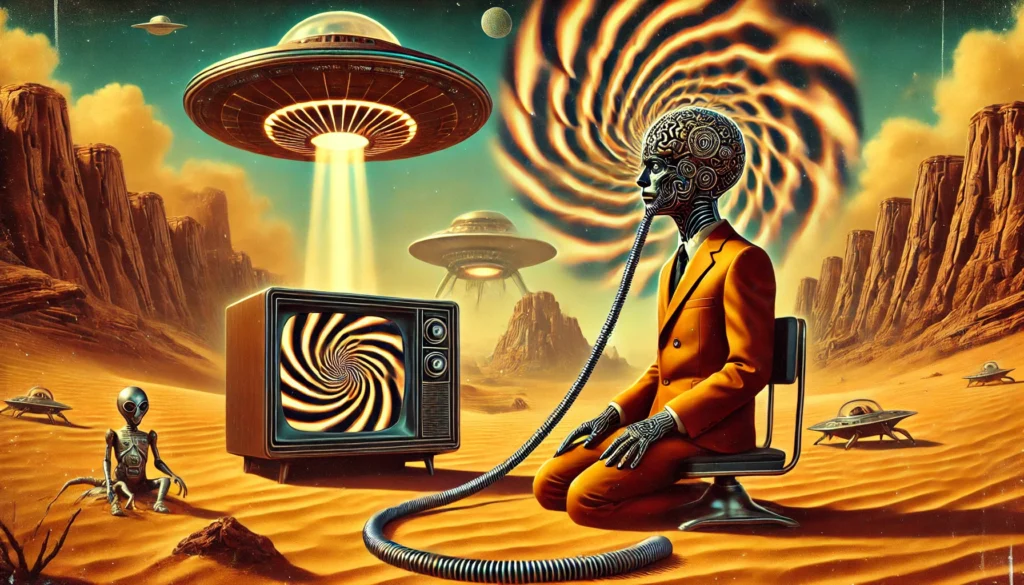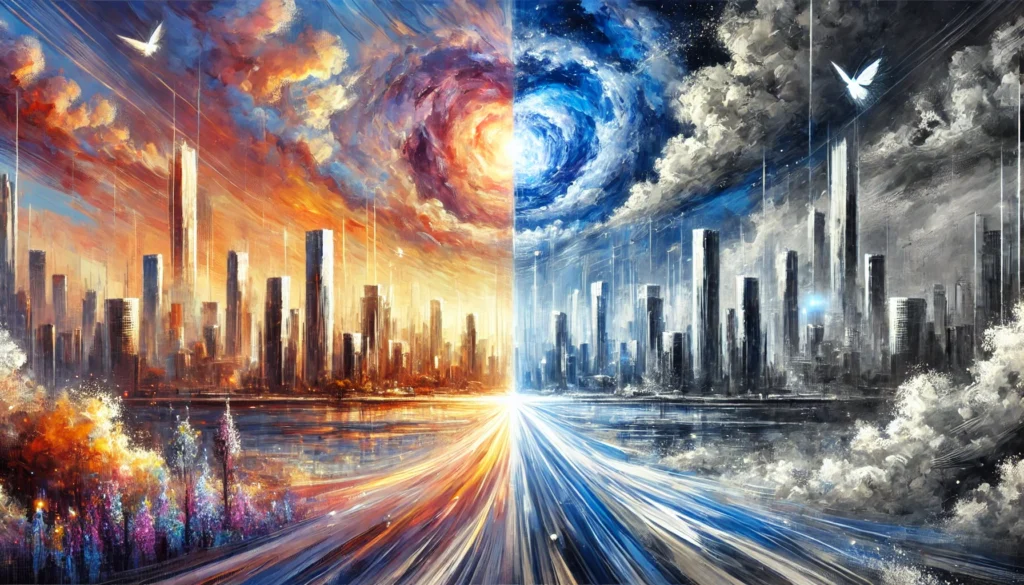Introduction
When one steps onto the sun-kissed shores of Hawaii, it feels akin to passing through a mystical portal. This shift in locale brings about a profound transformation in perspective, almost as if entering a realm where the norms of the world are rewritten. Hawaii, with its lush landscapes and vibrant culture, offers more than just a visual feast; it introduces us to a different way of interacting with the world and each other. Here, the hustle of mainland life seems to fade away, replaced by a rhythm that beats to the tune of kindness and community. In Hawaii, even a simple gesture like throwing a ‘Shaka’ in the rear-view mirror transcends its physicality, becoming a symbol of goodwill – a courtesy so natural yet so distinct from our everyday experiences. This disparity begs the question: why has such simple, heartfelt kindness become a rarity in our usual lives? The philosophical underpinnings of this question reveal much about the society we have built and the values we uphold.
The Hawaiian Experience: A Deeper Look
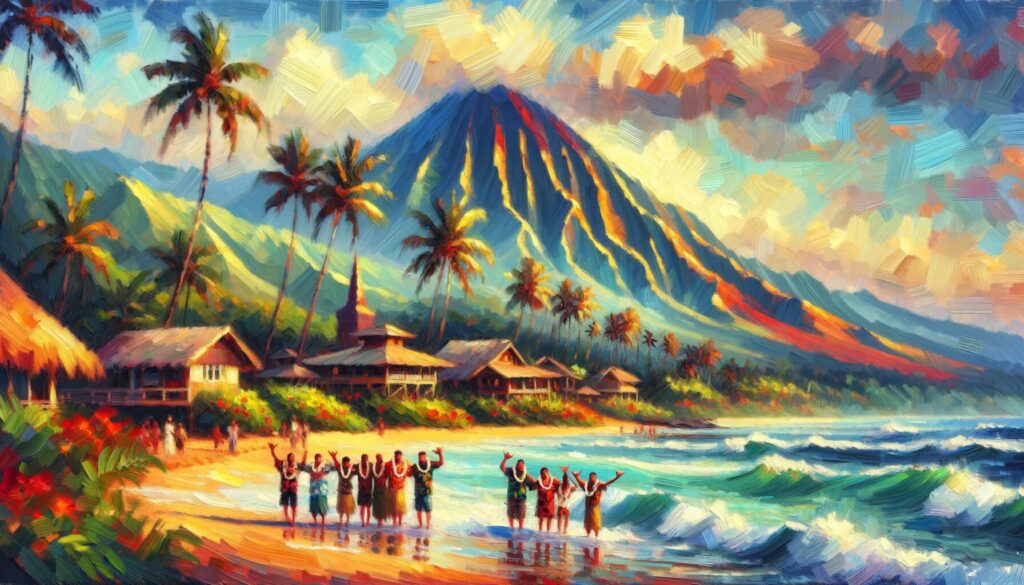
The essence of Hawaii goes far beyond its picturesque beaches and towering volcanoes. It lies in the heart of its people and the way they embrace life. In Hawaii, every interaction, no matter how small, is infused with a spirit of aloha – a complex, deeply ingrained cultural concept that encompasses love, peace, and compassion. This spirit manifests in gestures like the Shaka sign, a symbol of camaraderie and local identity, offering a stark contrast to the often impersonal interactions on the mainland.
The Shaka, casually flashed in traffic or shared among friends, represents more than a mere wave. It’s an emblem of a society that values connection and mutual respect. Why does this feel so extraordinary? Perhaps, in our fast-paced, efficiency-driven lives, we’ve lost touch with these simple acts of human kindness. In Hawaii, the interplay of stunning landscapes and the warm, open nature of its people serves as a constant reminder of a different way of life – one where every individual is seen and acknowledged, where community and caring for one another are paramount.
The philosophical implications are profound. In a world increasingly dominated by technology and individualism, the Hawaiian way of life challenges us to rethink our priorities. It suggests a different paradigm, where the richness of human connection and the beauty of our environment are not just appreciated but are integral to our daily existence.
Contrast with Mainland Lifestyle
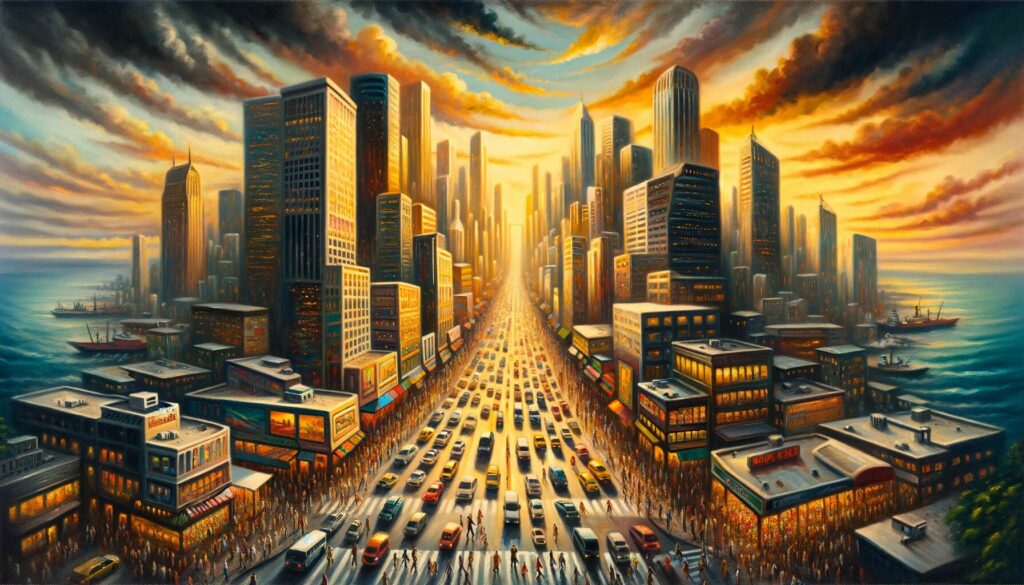
The mainland lifestyle, for many, is a sharp deviation from the idyllic scenes of Hawaii. Here, life often unfolds in a relentless pursuit of efficiency and productivity. This pace of life, while enabling remarkable technological and economic achievements, seems to have an unintended cost – the erosion of casual, heartfelt interactions that are a staple in Hawaiian culture. The rarity of simple gestures of kindness in many parts of the mainland is not just a matter of cultural difference; it’s a reflection of a broader societal shift.
This shift can be philosophically traced to the values that contemporary society holds dear. The emphasis on individual achievement and success often overshadows the importance of community and shared experiences. As a result, the opportunities for genuine, spontaneous interactions diminish, making gestures like the Shaka sign an anomaly rather than a norm.
Moreover, the structure of urban environments and the rhythms of modern life contribute to this change. In cities where anonymity is common and time is a scarce resource, the chances for small acts of kindness and recognition of others in our shared spaces become less frequent.
This contrast raises significant philosophical questions about the direction of societal evolution. Are we trading off essential human connections for progress and efficiency? The difference in the social fabric between Hawaii and the mainland not only highlights a geographical divide but also underscores a deeper philosophical conundrum about the kind of society we are cultivating and the values we are propagating.
The Luxury of Vacation: A Shift in Accessibility
In today’s world, the notion of vacation as a mere break from work has transformed into a symbol of luxury and privilege. This change is not merely a matter of perception but a reflection of the evolving economic realities for many families. Historically, the concept of a vacation was seen as a reachable respite for the working class, an opportunity to step away from the grind and rejuvenate. However, this accessibility has significantly diminished over time.
The economic landscape of the past allowed families, even those with modest means, to indulge in the occasional getaway. These journeys were not just trips; they were passages to ‘portals of perception’ where different cultures and environments provided fresh perspectives and renewed appreciation for life. The psychological and emotional benefits of such experiences were seen as invaluable, contributing to a more rounded, fulfilling life.
Today, this once-common aspect of life has become a distant dream for many. Factors like rising costs, increased living expenses, and stagnant wages have made vacations a luxury that few can afford. This shift has
philosophical implications. The inaccessibility of these experiences to a broader population not only widens the socio-economic divide but also limits the collective ability to gain new perspectives and understandings – an essential component of a well-rounded society.
Moreover, the diminishing opportunity for these ‘portals of perception’ changes the societal demeanor. When people are deprived of chances to experience different cultures, environments, and modes of living, their worldviews tend to narrow, impacting how they interact with others and perceive the world.
Impact of Limited Access to ‘Portals of Perception’
The gradual erosion of widespread access to vacation and travel experiences – these ‘portals of perception’ – has a more profound impact on society than might be initially apparent. Philosophically, the ability to travel and immerse oneself in different cultures and environments is akin to opening windows to new worlds. These experiences broaden one’s perspective, fostering empathy, understanding, and a sense of shared humanity. When such opportunities are scarce, there is a risk of developing a more insular, less empathetic society.
This limited access affects not just individual worldviews but the collective ethos. People with fewer opportunities to step outside their daily environments may find it challenging to develop and maintain the broader perspective necessary for a compassionate, interconnected society. The decrease in these experiential opportunities leads to a society where understanding and kindness, like those experienced in Hawaii, become exceptional rather than commonplace.
The implications are significant. In a world where understanding and kindness are scarce, societal tensions can increase, and the ability to relate to and empathize with others diminishes. This shift not only influences personal interactions but also impacts broader societal dynamics, potentially leading to a more fragmented and polarized community.
Therefore, the accessibility of these ‘portals of perception’ is not just a matter of individual luxury but a crucial element in the fabric of a healthy, empathetic society. Their dwindling availability raises essential philosophical questions about the kind of world we are building and the values we are prioritizing.
Kindness in Ancient Societies: When Vacations Were Unheard Of
In ancient times, long before the concept of vacations as we know them today, the expression of kindness had its own unique manifestation. In these eras, when the idea of leisure travel was virtually non-existent for the majority, communities found alternate pathways to experience and share what we might now consider the benefits of ‘portals of perception’.
The ancient world, with its limited means of travel and communication, relied heavily on the strength of local communities and the bonds forged within them. Kindness was an integral part of daily life, deeply embedded in cultural practices and traditions. It was less about grand, sweeping gestures and more about the routine acts that held communities together. A farmer sharing his harvest with neighbors, artisans contributing their skills to communal projects, or elders passing down wisdom and stories – these were the threads that wove the fabric of ancient kindness.
These societies, without the luxury of vacationing to distant lands, turned to their immediate environments to cultivate a sense of connection and understanding. Festivals, religious ceremonies, and market gatherings were not just social events but opportunities for individuals to step outside their daily routines and engage with the broader community. Such occasions allowed people to experience a form of mental and emotional ‘travel’, enriching their lives with new experiences and perspectives within the confines of their geographical boundaries.
Moreover, in ancient times, storytelling played a crucial role in expanding the collective consciousness. Myths, legends, and oral histories were not just entertainment; they were tools for instilling moral values, including the virtues of kindness and empathy. These narratives acted as windows to other worlds and lives, enabling people to connect with experiences and emotions beyond their immediate reality.
Thus, in a time when physical travel was a rarity, ancient societies found their ‘portals of perception’ in the richness of community life, the power of storytelling, and the shared experiences of their cultural and spiritual practices. This approach to life reminds us that the essence of kindness and the expansion of our worldviews do not solely depend on physical travel. Instead, they can flourish in the depths of human interaction and the collective narratives we create and share in our daily lives.
Conclusion
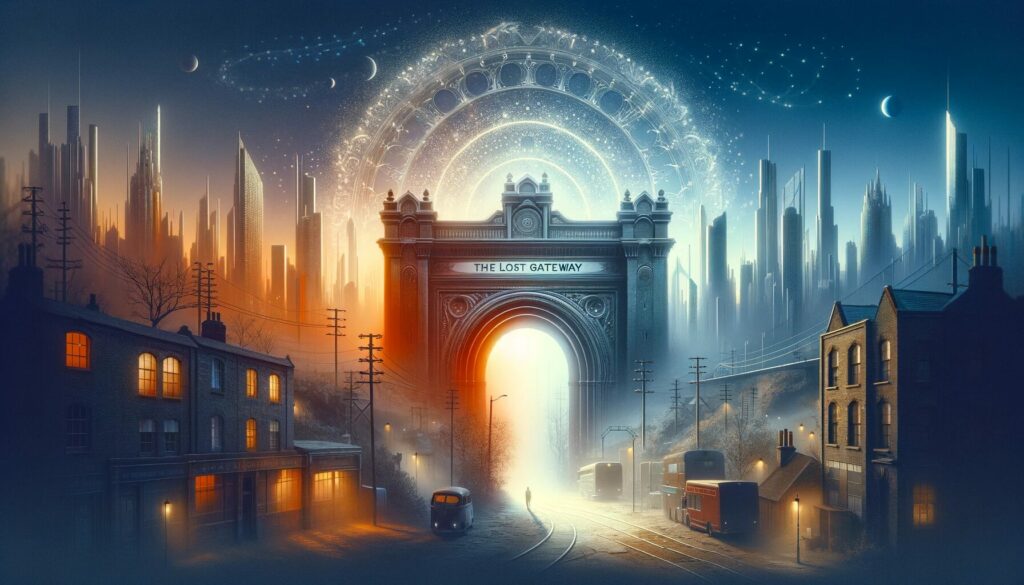
Our journey through the contrasting worlds of Hawaii and the mainland brings us to a crucial realization: the simple acts of kindness and connection we experience in places like Hawaii are not just pleasant anomalies; they are essential threads in the fabric of a healthy society. The philosophical implications of our dwindling access to these ‘portals of perception’ – be it through travel, vacation, cultural exchange, community, kindness – extend far beyond individual experiences. They touch upon the core of what makes us human: our ability to connect, empathize, and understand each other.
The rarity of such experiences in our daily lives, especially in the mainland lifestyle, is a poignant reminder of the values we might be losing in our pursuit of progress and efficiency. As we navigate the complexities of modern life, it is worth pondering how we can reintegrate these elements of kindness, connection, and broader perspectives into our society. Perhaps, the solution lies not in grand gestures but in the small, everyday acts that embody the spirit of aloha.
In the end, the Hawaiian experience offers more than a temporary escape from reality; it presents a model for a more fulfilling way of life – one that embraces kindness, community, and a deep appreciation for the world around us. As we move forward, it becomes imperative to find ways to make such experiences more accessible, allowing more people to step through these portals and enrich their lives and, by extension, our society.

